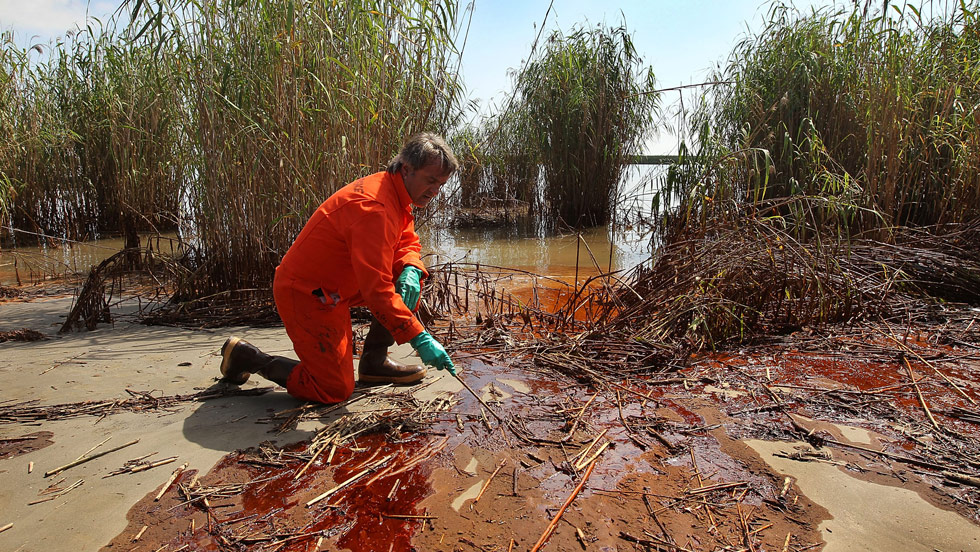MURDER, POLITICS, AND THE END OF THE JAZZ AGE
by Michael Wolraich

The short answer seems to be yes.
Ben Raines of the Alabama Press-Register has spoken with a number of marine scientists at private universities who say BP representatives are offering $250 per hour for them to join their legal team. The Press-Register examined one such contract that specifies that signing the contract 'prohibits the scientists from publishing their research, sharing it with other scientists or speaking about the data that they collect for at least the next three years.'
When BP tried to hire the entire marine sciences department at Alabama University, they declined. Bob Shipp, the head of the department said they didn't want to appear allied with BP, but the college couldn't prevent individual scientists signing on. By college rules, they can do outside consulting for up to eight hours a week; at the $250 an hour BP is paying, that could mean over $100,000 a year of extra money for them. (Not to mention tainting the science.)
Apparently, says Raines, the University of Southern Mississippi, Louisiana State, and Texas A&M have already signed on.
Raines says:
"The contract makes it clear that BP is seeking to add scientists to the legal team that will fight the Natural Resources Damage Assessment lawsuit that the federal government will bring as a result of the Gulf oil spill."
The NRDA, of course, will be determined by metrics of amounts of oil spewed (highly contentious numbers being bandied about already), amount of damage to marine life and the fishing, shrimp and oyster industries and many other categories. So it would seem that BP could stand to benefit enormously by controlling the information scientists discover or control by buying their silence.
Some universities are concerned that employees working for BP will put a stop to Federal research grant money. And some scientists are saying that the Gulf spill science is already being impacted by the contracts, and at the research meetings they have to sort out who is working for BP, and who is not.
Robert Wiygul, and environmental lawyer from Ocean Springs looked at the contract and said:
"This is not an agreement to do research for BP," Wiygul said. "This is an agreement to join BP's legal team. You agree to communicate with BP through their attorneys and to take orders from their attorneys.
"The purpose is to maintain any information or data that goes back and forth as privileged."
The contract requires scientists to agree to withhold data even in the face of a court order if BP decides to fight such an order. It stipulates that scientists will be paid only for research approved in writing by BP."
I have heard marine biologists and scientist say that if there were one small benefit to come out of the devastation in the Gulf, it would be that the effects of the oil and the Corexit could be studied; it would become an enormous laboratory for the effects of oil on ecosystems. And now even that may be in serious jeopardy if BP gets its way--again.
Raines reports that some scientists say that the NOAA contracts they've seen are almost as restrictive as BP's. That bears some scrutiny and more reporting, too.
Meanwhile, the NOAA Fisheries Safety folks are reporting that outside and near the border of the closed-to-fishing areas, the fish are safe to eat. I can't find the original Fisheries pdf. that I read this morning, but it spoke of "sensory testing" the fish. Hmmm, we wonder; "does that mean they are sniffing the fish for oil contamination?" Indeed it does. This article says 56 fish-sniffers have been brought to the Gulf to help. Some are tested further, but so far NOAA says they either don't have ways to test for Corexit, or they don't need to, since Corexit is safe for humans at low levels. (I have read both versions of their statements.) Untainted fish is sent off for chemical testing.
England banned the use of Corexit ten years ago. I'd like to think that our partners in Great Britain would be happy to share their science on Corexit if the EPA and NOAA would just ask for it.
(Sniff.)